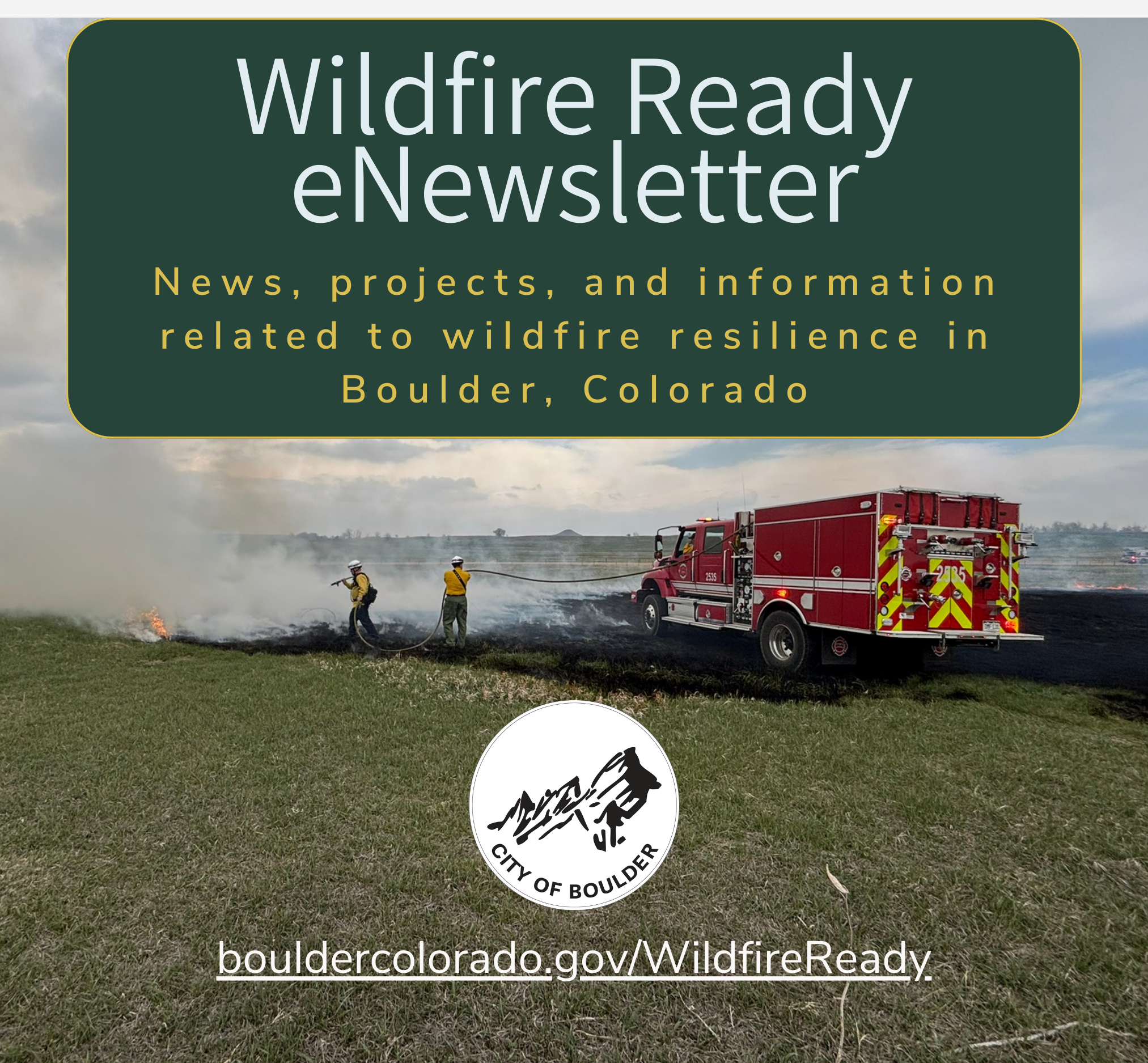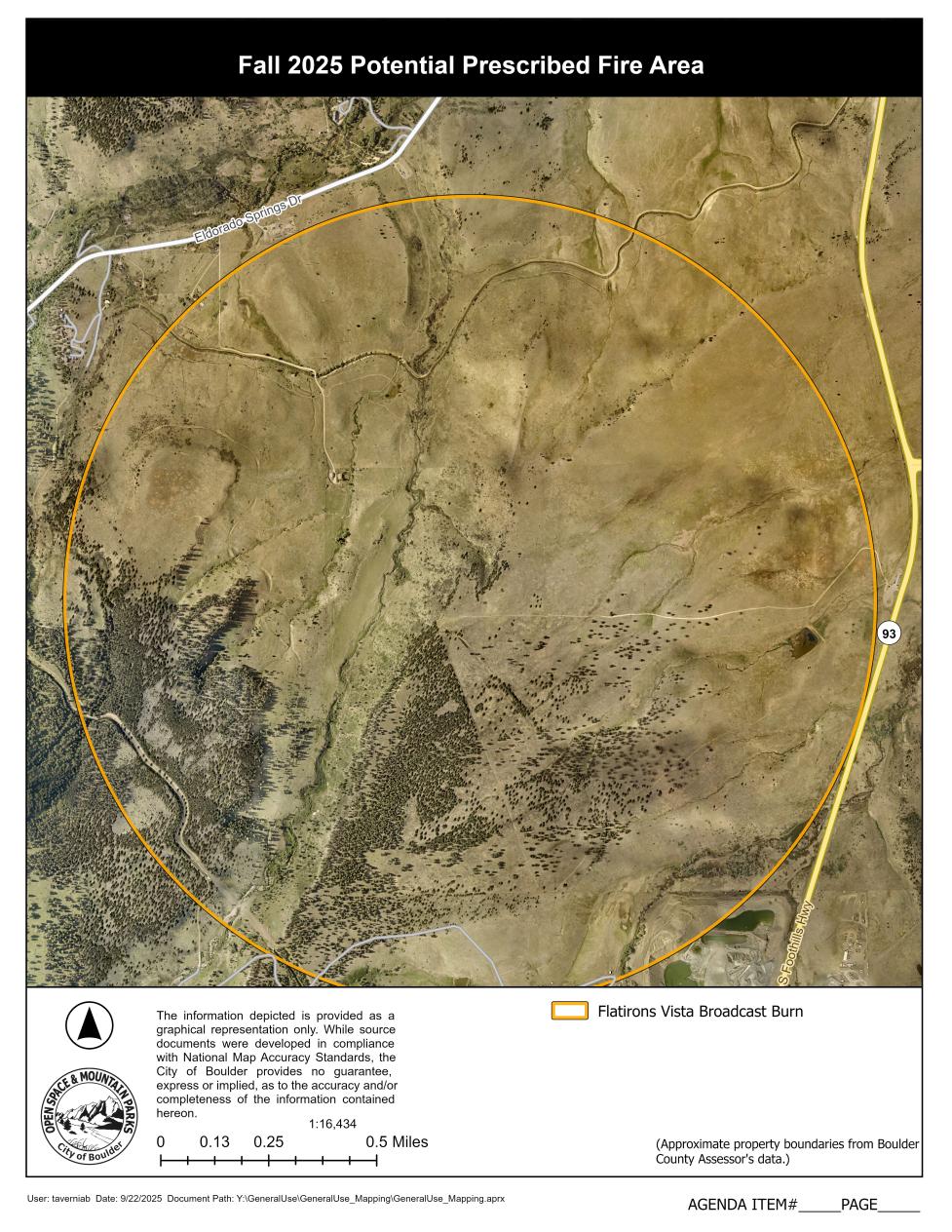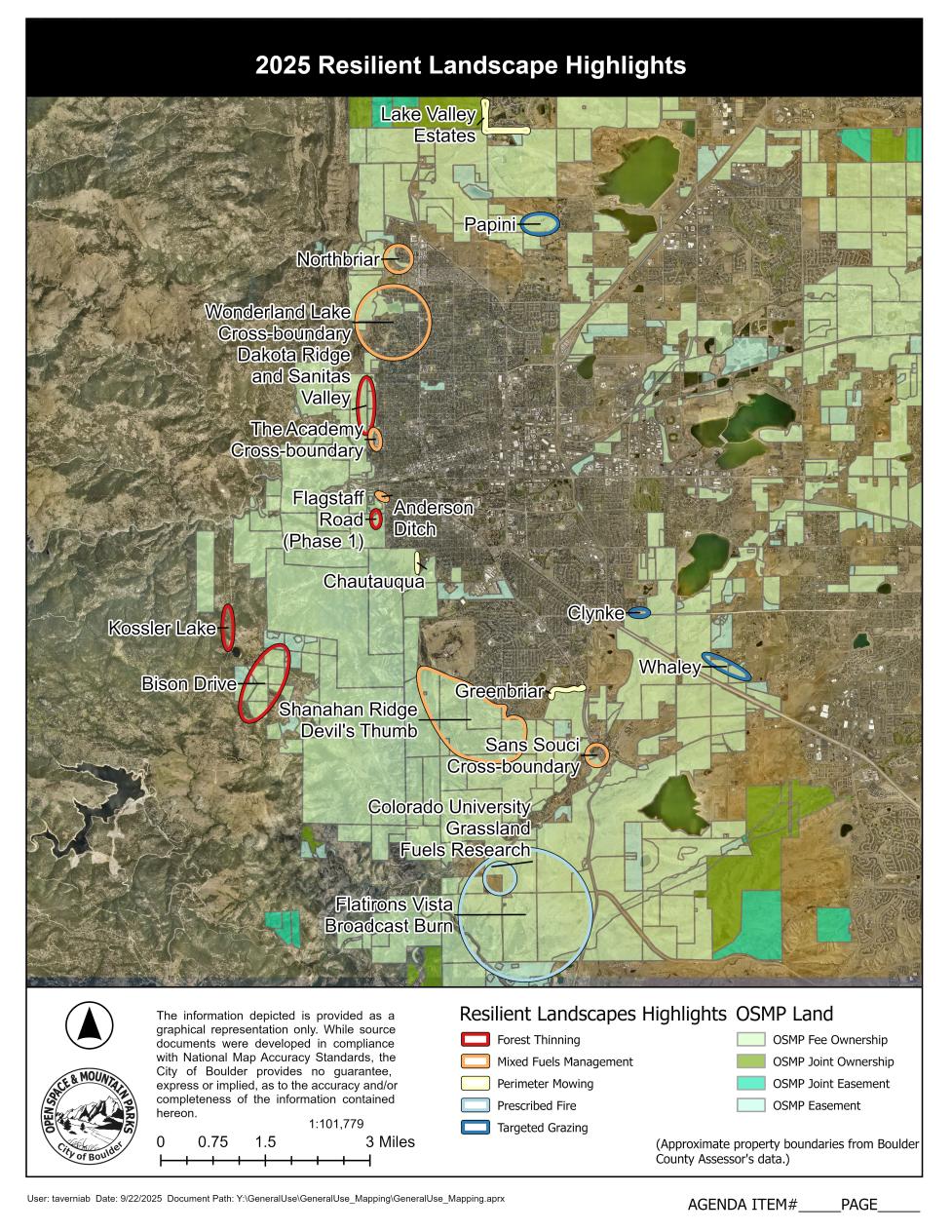Wildfire preparedness is not something only fire departments do. At the City of Boulder creating a resilient community for wildfires includes interdepartmental work as well as regional work.
Boulder Fire-Rescue Wildland Division, Open Space and Mountain Parks, Climate Initiatives, and Parks and Recreation with the City of Boulder all play a role in creating a more resilient community.


